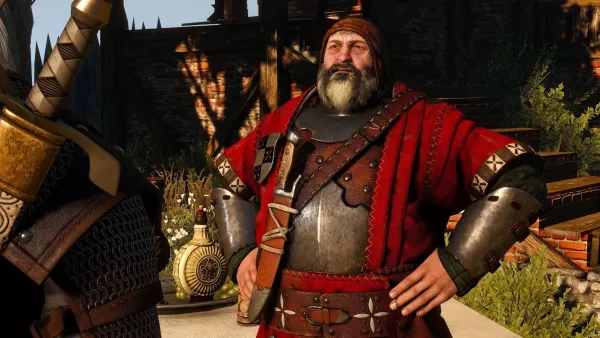by Connor Sep 15,2025


CD Projekt Red has carved its reputation through exceptional game design. The Witcher 3, celebrating its 10th anniversary, remains widely regarded as one of the greatest RPGs ever created. Cyberpunk 2077, after significant improvements, has become a benchmark for immersive open-world experiences. These landmark titles - along with their other acclaimed releases - have established CDPR as a studio operating at the highest echelon of game development.
What truly distinguishes CDPR games is how interconnected systems create a cohesive, reactive world where player choices carry authentic weight. While many RPGs employ branching narratives, few achieve CDPR's level of execution.
"In many AAA RPGs, you can sense the constraints of development tools," explains Patrick Mills, CDPR's franchise content strategy lead. "Players often misinterpret these limitations as laziness, when in reality developers frequently encounter technological barriers to realizing their creative vision."

CDPR's approach to choice design involves thorough foreshadowing and delayed consequences. "We present all sides clearly beforehand," says associate game director Paweł Sasko. "Players understand the context before making decisions, which makes the eventual outcomes feel earned."
This philosophy shines in Phantom Liberty's finale, where players must choose between helping rogue agent Songbird escape or turning her over to handler Reed. Neither option presents clear moral superiority, creating a genuinely complex dilemma.
Quest designer Paweł Gąska emphasizes emotional authenticity: "We want players to see how good intentions can backfire, or how morally gray choices might become justified through circumstance."
CDPR's proprietary REDengine has been instrumental in realizing their ambitious designs. The technology has evolved across four iterations, enabling complex systems to interact seamlessly.
"With large-scale RPGs, variety becomes essential," explains level design lead Miles Tost. "Players need fresh experiences within these expansive worlds to maintain engagement."

The studio acknowledges challenges in adapting their signature choice systems to different game structures. The Witcher 2's radical branching paths between acts proved resource-intensive, while Cyberpunk 2077's open-world format demanded new approaches to consequence visibility.
"We learned that our base game's subtle consequences were often missed," admits Mills. "Phantom Liberty adopted a more direct approach to ensure players recognized their decisions' impact."
As CDPR transitions to Unreal Engine 5 for The Witcher 4, the studio aims to expand player agency beyond previous achievements. "We want to put player choice at the center," says game director Sebastian Kalemba. "Not just narratively, but through deeper gameplay systems that reinforce player expression."
After Cyberpunk 2077's challenging launch and subsequent redemption, The Witcher 4 represents CDPR's opportunity to integrate hard-won lessons into their next generation of ambitious RPG design.
Mobile Legends: January 2025 Redeem Codes Released
Pokemon TCG Pocket: Paralyzed, Explained (& All Cards with ‘Paralyze’ Ability)
Android Action-Defense
Brutal Hack And Slash Platformer Blasphemous Is Coming To Mobile, Pre-Registration Now Live
Pokémon TCG Pocket Is Dropping a Trade Feature and Space-Time Smackdown Expansion Soon
Mythical Island Debuts in Pokemon TCG, Time Revealed
GWENT: Top 5 Decks for 2025 - Strategies Revealed
Marvel Rivals Showcases New Midtown Map

Pocket Journey (Unreleased) by Maryanne Adams
Download
Labo Christmas Train Game:Kids
Download
Lucky Lady's Charm Deluxe Slot
Download
Vô Cực Đại Chiến
Download
Lunch with Ronan mod
Download
Diamond Deluxe Casino - Free Slot Machines
Download
Shopping Mall 3D Mod
Download
Priya’s Awakening
Download
Flight Pilot: 3D Simulator
Download